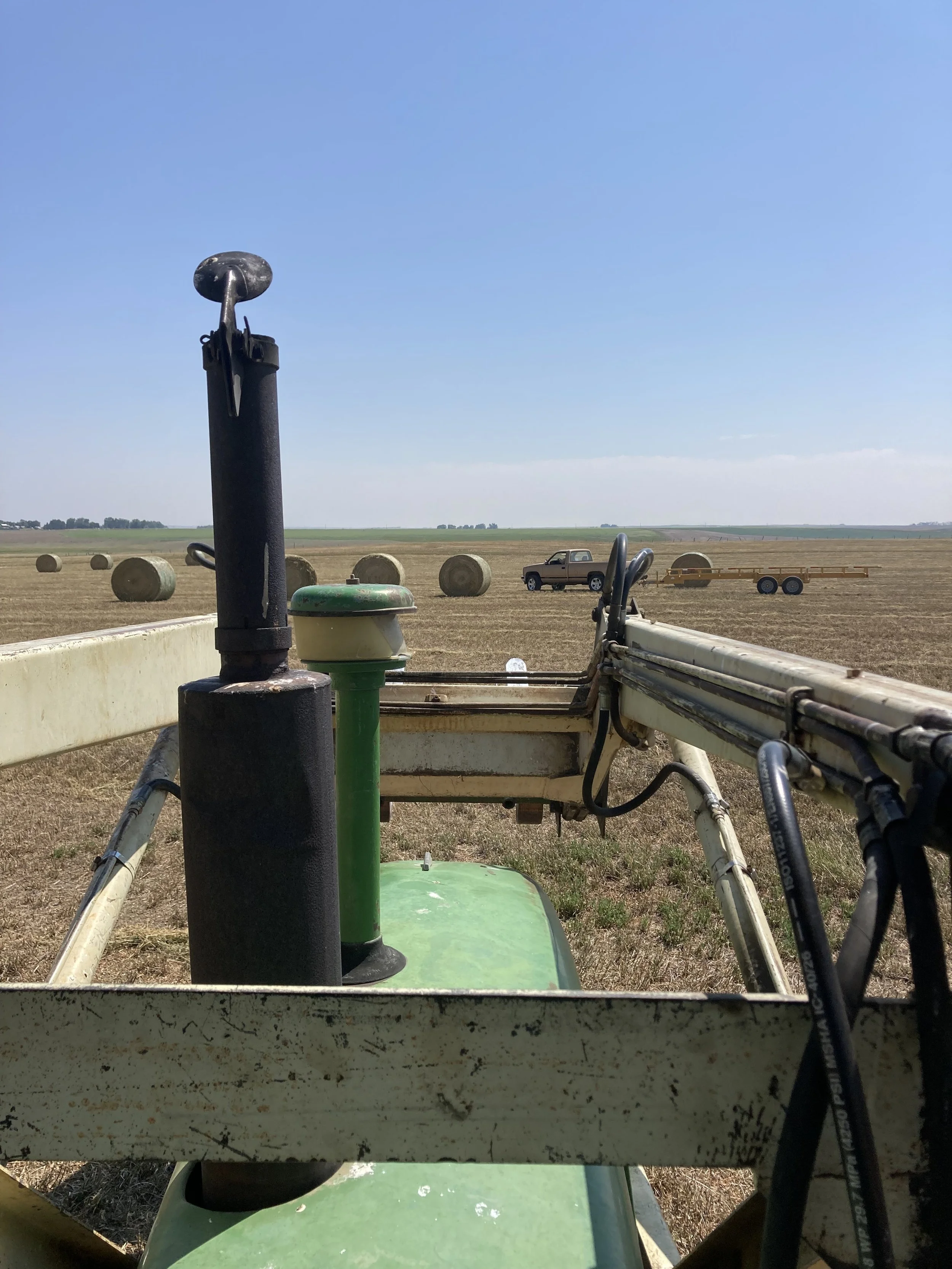Hay Hauling Entertainment
My brother, Roger, and I have been hauling bales from my alfalfa field to the stackyard.
I’m so happy to have hay to haul this year. The alfalfa rebounded from last year when it wasn’t tall enough to cut to an intimidating number of bales this year.
I gather the bales with my tractor and load them on the trailer. Roger drives three miles to the stackyard and unloads. While he is unloading, I gather the next load.
Driving the tractor is not my favorite job.
The tractor is old and slow. It forces me to slow down.
The bales are heavy. The tractor handles them just fine, but I worry about stress points that might break if I am not careful.
Slowing down and moving deliberately are not my natural mode of operation.
Yet when I am forced, I remember the benefits.
I see things I missed before.
I think through dilemmas.
And I listen to books that explain ideas, old and new.
Since I knew I’d be on the tractor for a while, I downloaded several options from the library.
Think and grow rich, written by Napoleon Hill in 1937, is deemed the first self-help book. Right after the Great Depression getting rich was important to a vast array of people. Hill’s book combines attitudes of the day with advice that has stood the test of time. Hill advised people to set goals that are specific, measurable and can be reached on a timeline. Now, experts call those SMART goals. Hill reminded people that our thoughts create our reality so find the good in every situation and tell yourself you can reach your goals. Gwenyth Paltrow would tell you the same thing.
Yet barely under the surface was a refrain of blame. Hill implied that if a person were not rich, it was his fault and only his fault. A lack of success was proof that Hill’s audience – he spoke only to white, middleclass men -- just didn’t have enough faith or spend enough time truly believing in personal success. He did not recognize that some aspects of success are beyond a person’s control –systemic discrimination, drought and injustice immediately came to my mind.
Hill’s book reminded me that sermons disguised as advice keep getting repackaged and resold, but progress depends on fundamental renovation, not just shiny new wrapping paper.
I hadn’t read Jane Austen’s Pride and Prejudice since high school so my time on the tractor allowed me to revisit this classic. Written in 1813, Austen’s story of individual growth, with writing that flows beautifully from descriptive scenes to inner thoughts, reminded me that some aspects of human experience are timeless. Assumptions and misunderstandings abound until people actually talk to one another. Teenagers plot romance with the same thoughts whether those thoughts are delivered in a letter by coach or via Snapchat.
Romance is not a huge part of my life so I turned next to An Immense World, How Animal Senses Reveal the Hidden World Around Us by Ed Yong. Yong stretched my mind by describing how our human senses limit our thinking and how other beings experience the world completely differently. He wrote about how and why rattlesnakes perceive the world through their tongues, spiders experience a life of vibration, and robins recognize magnetic fields while we mostly learn by seeing things. We can expand our understanding of the world by observing how other species react to what they sense. Yong’s book carried me past my human-centric view of how the world works.
I doubt I would ever sit down to read these books. Maybe my slow old tractor offers more value than I gave credit by forcing me to slow down, too.
